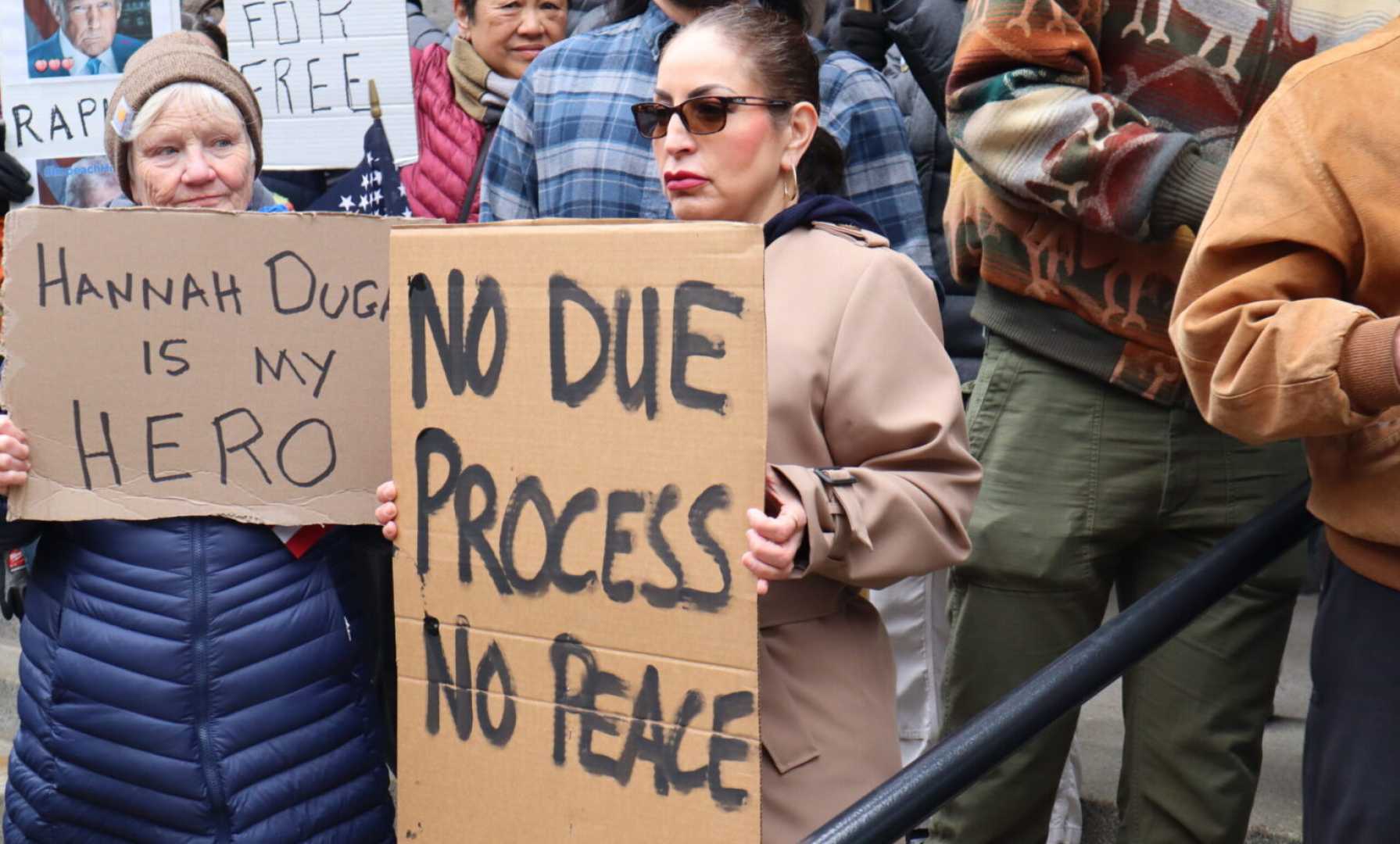News
Wisconsin Judge Arrested Amid Immigration Dispute Raises Safety Concerns

Milwaukee, Wisconsin – FBI agents arrested Milwaukee County Circuit Judge Hannah Dugan last week, charging her with obstruction of justice for allegedly helping a defendant evade arrest. The defendant, Eduardo Flores-Ruiz, is a Mexican national facing a misdemeanor battery charge while living in the U.S. without legal status.
According to the criminal complaint, after being informed of the presence of Immigration and Customs Enforcement (ICE) agents at the courthouse, Judge Dugan became visibly upset. During Flores-Ruiz’s hearing, she purportedly directed him to exit through a jury door to avoid being apprehended by federal agents, which they later did outside the courthouse. Judge Dugan’s actions have drawn criticism and raised concerns regarding the chilling effect her arrest may have on immigrant participation in the legal system.
State Representative Ryan Clancy, a Democrat from Milwaukee, expressed concern about the implications of Dugan’s arrest, stating, “Courthouses should be places where everyone feels safe to come and participate in the justice system.” He noted that the presence of ICE officials may dissuade individuals, both defendants and witnesses, from attending court out of fear of being arrested.
U.S. Attorney General Pam Bondi called Judge Dugan “a criminal judge sitting on a criminal bench,” supporting the decision to charge her. The incident also follows escalating tensions between the Trump administration and various judicial entities, including calls for the impeachment of judges perceived to obstruct enforcement actions.
The case has sparked protests outside the Milwaukee federal courthouse, with supporters chanting, “No justice, no peace. Let the judge be released.” Many see Dugan’s arrest not simply as a legal maneuver but as part of a broader strategy to intimidate judges and other officials who might oppose the administration’s immigration policies.
Critics of Judge Dugan’s actions argue that attempting to shield a defendant from federal arrest undermines the rule of law. Figures on the right have seized on the incident to emphasize the need for judicial accountability in immigration enforcement matters.
As this case unfolds, legal experts warn that such actions could undermine public trust in the judicial process, particularly among immigrant communities that might already feel vulnerable in the current political climate. “The idea that even judges can be apprehended creates an atmosphere of fear that will only complicate community cooperation with law enforcement,” stated Clancy.
Ultimately, the events surrounding Judge Dugan’s arrest highlight the contentious intersection of immigration enforcement and the judicial system, raising fundamental questions about the balance between law enforcement and judicial independence.












